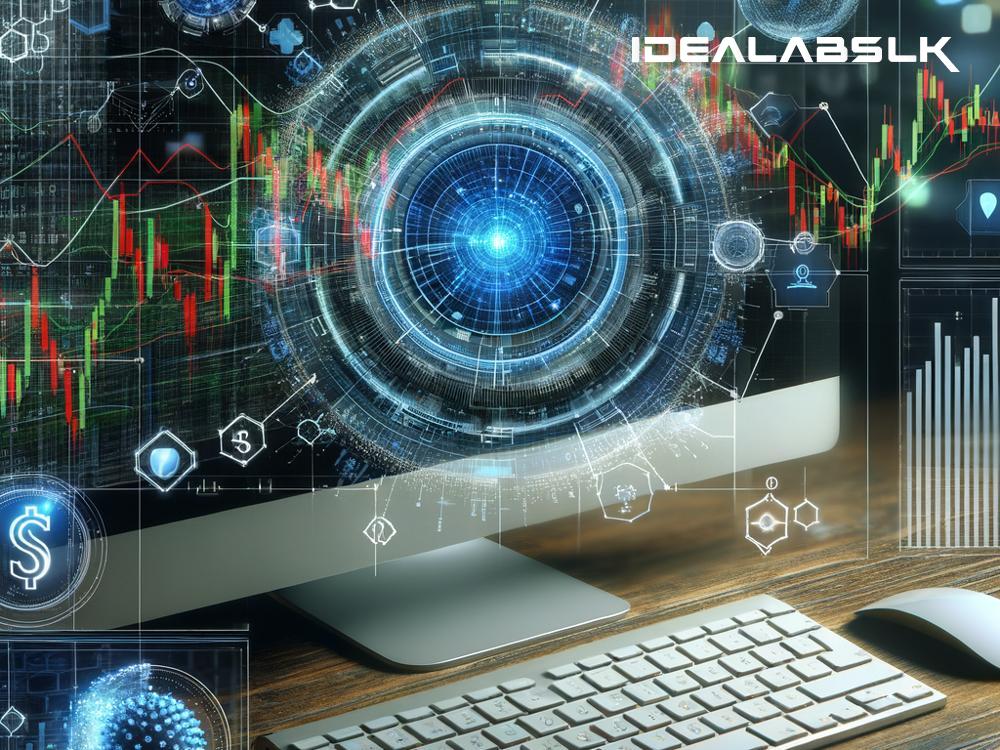AI in Trading: The Path to Building Smarter Trading Algorithms
The stock market is a massive, pulsing entity, alive with the collective heartbeat of the world’s economies. Investing in it has always been seen as a blend of art and science, requiring both instinct and analysis. But what if we could augment our human capabilities with artificial intelligence (AI)? Imagine creating smarter trading algorithms that could learn, adapt, and predict more accurately than ever before. That's exactly what's happening in the world of stock market trading today, reshaping how we approach this age-old endeavor.
The Dawn of AI in Trading
For years, humans have tried to crack the code of the stock market, with varying degrees of success. But the advent of AI has opened new frontiers. Unlike traditional methods, AI can process vast amounts of data at incredible speeds, identify patterns invisible to the human eye, and make predictions based on complex variables. This capability doesn't just add a tool to the trader's toolkit; it potentially reinvents the whole toolkit.
Understanding Trading Algorithms
Trading algorithms aren't a new concept. These are programs designed to execute trades based on predefined criteria, such as price, timing, or volume. However, traditional algorithms are static; they do what they're programmed to do and nothing more. If the market changes – as it often does – these algorithms can quickly become outdated.
Enter AI and machine learning, which allow these algorithms to evolve. By feeding them data from market trends, news, social media, and even weather reports, these AI-driven programs can learn and adjust their strategies in real time. This is not just evolution; it's revolution.
The Advantages of Smarter AI Algorithms
-
Speed and Efficiency: AI can analyze data and execute trades at speeds no human can match. This allows for exploiting short-lived trading opportunities that would be impossible to leverage manually.
-
Emotionless Trading: Emotional bias is a significant obstacle in trading. Fear and greed can lead to poor decisions, but AI operates solely on cold, hard data, mitigating the risk of emotional trading.
-
Improved Prediction Accuracy: With the capability to analyze past and present data, AI algorithms can forecast future market trends with a higher degree of accuracy. This means potentially higher returns and lower risks.
-
Adaptability: AI algorithms can adapt to market changes in real-time, continuously learning and optimizing their strategies without human intervention.
Building Smarter Trading Algorithms
Creating these intelligent algorithms requires a multidisciplinary approach, blending finance, mathematics, and computer science. Here's a simplified overview of the process:
-
Data Collection: The first step is gathering data. This includes historical market data, real-time feeds, news articles, and even social media trends.
-
Feature Selection: Not all data is equally useful. Selecting the right features (data points) that have the most predictive power is crucial.
-
Model Development: This involves creating the algorithm using machine learning techniques. The choice of model (e.g., neural networks, decision trees) depends on the problem at hand and the characteristics of the data.
-
Training and Testing: The model is then trained with historical data and tested to ensure it performs as expected.
-
Deployment: Once the algorithm is refined and tested, it’s deployed in the real market. However, continuous monitoring and adjustment are necessary as the market evolves.
Challenges and Considerations
The integration of AI in trading isn’t without its challenges. Market conditions can change abruptly due to unforeseen events, and even the smartest algorithms might struggle to adapt quickly enough. There’s also the issue of overfitting, where an algorithm performs well on historical data but fails in a live market. Moreover, the ethical implications of AI-driven trading – such as potential market manipulation or unequal access to trading technologies – warrant careful consideration.
The Future of Trading
AI in trading is not just a passing trend; it represents the future direction of the stock market. As technology advances, we can expect trading algorithms to become even smarter, more efficient, and more integrated into our financial systems. This doesn’t mean that human traders will become obsolete, but rather that they will need to adapt, learning to work alongside AI to make the most informed trading decisions possible.
In sum, the stock market is undergoing a transformation, thanks to AI. By harnessing the power of smarter trading algorithms, we’re not only unlocking new potential for profits but also gaining a deeper understanding of the market's complex dynamics. The synergy between human intuition and AI's analytical power paves the way for an exciting future in stock market trading.

